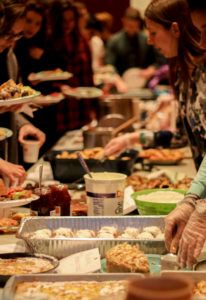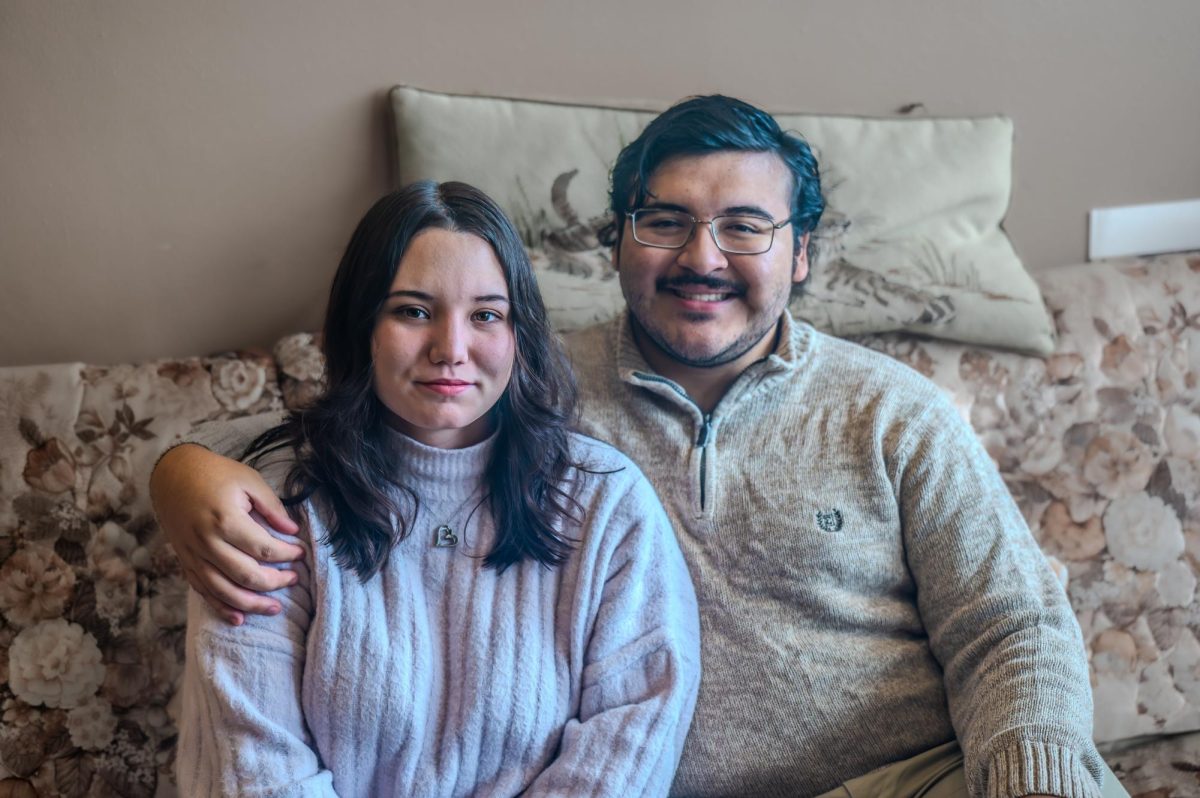
On Saturday, Feb. 24, Slavic Coffeehouse turned JRC 101 into a comfortable, warm room filled with new and exciting smells from Slavic cuisine.
A long-standing tradition of spring semester, Slavic Coffeehouse brings students, faculty and community members together to experience Russian and Slavic cuisine and to celebrate with the Grinnell community. All the food is made by students taking Russian language or literature courses, as well as students who have backgrounds in Slavic countries.
Slavic Coffeehouse is an event that celebrates the sharing of culture and food. It brings people a new understanding of Slavic culture and a way to connect with their home and history.
“Having a Slavic background, it definitely has a homey feeling. Food has a strong connection to memory, so it’s nice to be reminded of what my parents make,” said Anna Tuchin ’19.
Food as a representation of culture is an important part of the mission of Slavic Coffeehouse. By using something as universal as food to connect cultures, everyone who attends this event can learn something about the Slavic tradition.
“If you want to know somebody, just share dinner with them. I think it is the best way of communication,” said Visiting Professor Alexander Kubyshkin, Russian.
Slavic Coffeehouse is also tied to a traditional Russian holiday, Maslenitsa, which is observed at Grinnell with the burning of an effigy.
“In recent years we combine the event with the Russian holiday, Maslenitsa, similar to a Russian Orthodox Mardi Gras. That involves Russian style pancakes, blini, which symbolize the sun, and it also involves the ritual burning of an effigy of a straw figure — Granny Winter. A way to chase winter away,” said Professor Todd Armstrong, Russian.
Slavic Coffeehouse also provides a fun, intimate venue for Grinnell community members and students to connect.
“It’s always been a wonderful experience. There is always good food, and the students are friendly and good cooks,” said Associate Professor Emerita Diane Robertson, biology.
“It’s a fun event because students are feeding the people and students are able to try Russian dishes,” Armstrong said.
Furthermore, the proceeds from Slavic Coffeehouse go to the upkeep of Russian House. Altogether, the price is a great deal for the quality of food and company.
“It’s crazy that you can get this amazing, home cooked food for four dollars a plate,” said attendee Vincent Benlloch ’18.
“I was involved in Slavic Coffeehouse for every year of my college career. I’m always super impressed every year by how good the food is,” agreed Sam Burt ’17.
“I think it is a really well-organized event. The food is delicious. I’m Russian, and I can tell that this is a really authentic Russian cuisine,” said Olga Baldwin, a Grinnell community member.
All in all, the fun, social environment of Slavic Coffeehouse can teach something to every student, faculty and community member.
“I hope people who come get something good to eat, learn a little bit about Russian and Slavic culture, and meet students and faculty of the Russian department,” Armstrong said. “As well, I hope the students cooking get the satisfaction of feeding others.”
If you missed Slavic Coffeehouse this year, you will have another opportunity to enjoy the great food and good company next year.



















































